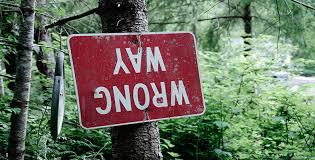Last week I got an email from my ex-partner regarding a birthday gift for our daughter. Upon first reading, I thought he had once again failed at the very minimal parenting job he had been assigned. His participation in our family life amounts to video calls and sending gifts for Christmas and birthdays. And given that very limited role he has managed to screw it up from time to time by not sending the gifts that were requested.
Due to minimal contact with the kids, my ex doesn’t know what they like, are interested in or take part in on a day to day basis; so, we give him suggestions for gifts. He doesn’t always take those suggestions and when he doesn’t it’s aggravating. What does a middle-aged man know about what a toddler, a child a teenager wants—nothing.
When I saw an email asking if I had gotten the lights that our daughter had asked for, my years of experience suggested that he had not bought them and thought I did. After a moment or two of frustration, I read the email again—always best to take a beat to reinstate calm before you reply to an email—and saw that what he wrote could be interpreted in two ways; he either thought I bought them or he mailed them and wanted to know if they were delivered.
In the spirit of peace, I gave him the benefit of the doubt and chose to respond as if the latter scenario was playing out. And, to my surprise, it was. Two days after the email exchange, the lights arrived in the mail. I was very pleased to have been wrong.
That started me thinking about how good it is to be wrong. Most of the time being wrong is horrible. It’s definitely not good to be wrong when it results in plane crashes, nuclear reactor meltdowns and sunken ships. But there are instances; many of them involving interpersonal relationships, where it is good to be wrong.
Many people can never admit when they are wrong. They feel it reduces their power and status. But being wrong and admitting it can be beneficial.
Admitting you’re wrong is a real power move. People respect those that can admit to being wrong. They don’t respect people who are wrong all the time, but if on occasion you change your ideological position, admit to a mistaken idea, accept that your answer is flawed or in error; this increases the confidence others have in you. It demonstrates that you are capable of change, are open to ideas, and are willing to accept criticism. Wouldn’t everyone appreciate a partner, boss or political leader that had those qualities? Because not one of us humans are always right.
It is only in the past 10 years or so that I have been able to easily admit to being wrong, to see the grey areas in my political and religious beliefs and be more accepting of others and the ways they are wrong too.
The good thing about being wrong is that you can learn. You don’t have to maintain that what you thought when you were 20 is still correct when you are 40. Life will teach you time and time again that you are wrong; frequently. The thing to do is accept it.
There’s nothing in life that will teach you more about being wrong than being a parent. If there is one thing that I am sure I am right about, it is this phrase that I have made into a mantra over the last 20 years, ‘There’s no right way to be a parent and about 1,000 ways to do it wrong.’
The people you need to say ‘I was wrong’ to the most are your kids. It took me a while to learn that but luckily not too long. It’s even more important if you have more than one child because you will be called out for unfair treatment no matter how hard you try to behave and apply the same rules to each child.
Being wrong in everyday life is a reason to rejoice. It means you’ve learned something new. You’ve opened the door to other possibilities and imaginings. Being wrong widens your world as you search for the answers you thought you already had.
Admitting that you are wrong promotes peace. If every person, religion, nation was steadfastly correct and unyielding in their positions and beliefs—war would be never ending. If we all have to be right, and none of us can be wrong, there is no room for compromise. You’ll be stuck on the last page of The Butter Battle Book with no hope for what might be written in the sequel.
I recently watched the tv series Little Fires Everywhere. (Spoiler) In each episode, the main character Elena sees one good intention after another fail and set off a cascade of negative outcomes. Despite that, and what her husband and others try to tell her, she constantly replies to any criticisms by stating that she is ‘a good person’. I believe that she means to be—she’s just a good person who is wrong. But episode after episode she keeps walking the path of the self-righteously correct.
In the finale, as she sits watching the results of her numerous efforts to correct others’ mistakes and hold them accountable, she finally sees that the person most wrong, most responsible for everything falling apart, is herself.
Unfortunately, this is fiction, and rarely do we see so clearly our own mistakes or admit them to others. But if we do, life will be better. For Elena—only through admitting that she was wrong can she hope to retrieve her life and loves from the ashes around her. That might be true for us all.

No comments:
Post a Comment